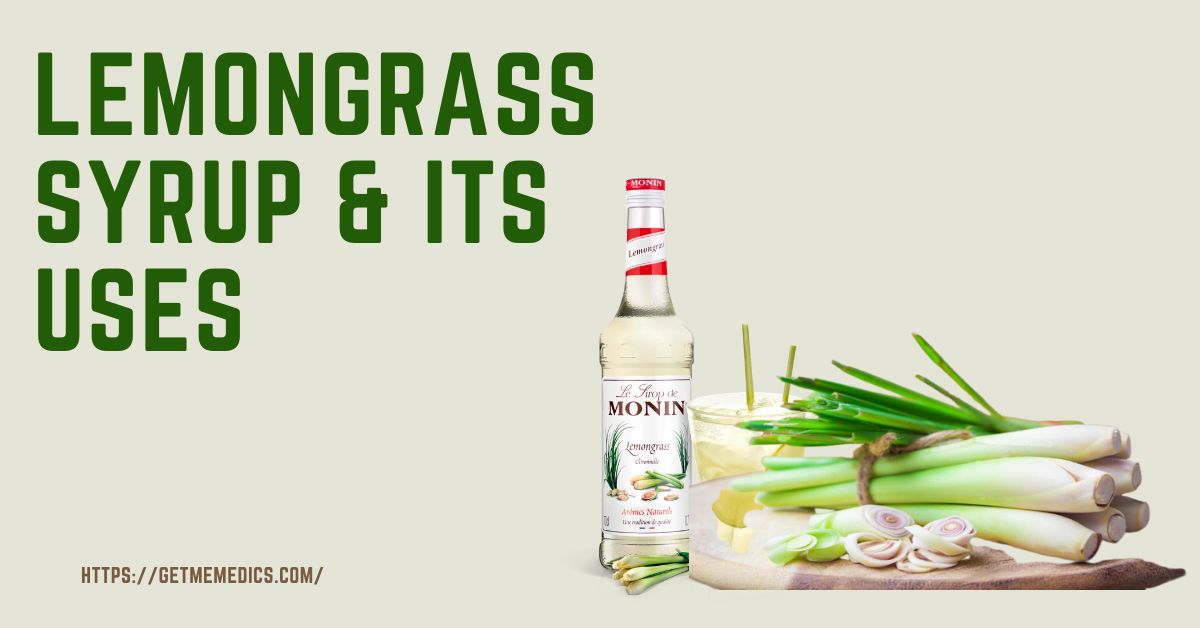Lemongrass syrup is a zesty and aromatic sweetener that brings a burst of citrusy goodness to a variety of culinary creations. Made from the essence of fresh lemongrass, this syrup offers a delightful flavor profile that complements both sweet and savory dishes. In this article, we will delve into the uses, composition, potential side effects, precautions, dosage instructions, interactions, and alternative options of lemongrass syrup.
What is Lemongrass Syrup?
Lemongrass syrup is a concentrated liquid derived from lemongrass, a tropical herb known for its vibrant lemon-like flavor and aroma. It is created by blending lemongrass extract with sugar and water to produce a versatile and zesty syrup.
Uses of Lemongrass Syrup
Lemongrass syrup finds various uses in the culinary world due to its unique taste. Some common applications include:
- Flavoring Beverages: Lemongrass syrup can be used to sweeten and add a citrusy twist to teas, lemonades, and cocktails.
- Enhancing Desserts: It complements desserts like cakes, sorbets, and fruit salads, giving them a refreshing and tangy kick.
- Marinades and Sauces: In savory dishes, lemongrass syrup can be used to create marinades, dressings, and dipping sauces, infusing them with a delightful lemony flavor.
Composition of Lemongrass Syrup
Lemongrass syrup typically consists of lemongrass extract, sugar or sweeteners, water, and preservatives. Some varieties may also include natural or artificial flavorings. It is essential to read the product label for specific ingredient information, especially for those with dietary restrictions or allergies.

Side Effects and Precautions
5.1 Allergic Reactions
Individuals with known allergies to lemongrass or other grass-like plants may experience allergic reactions to lemongrass syrup. Allergic symptoms may include skin rashes, itching, swelling, or respiratory issues. In the event of any negative responses, cease usage and promptly seek medical assistance.
5.2 Pregnancy and Breastfeeding
Pregnant and breastfeeding individuals should exercise caution when consuming lemongrass syrup. Limited studies are available regarding its safety during these periods, and it is advisable to consult a healthcare provider before use.
5.3 Interaction with Medications
If you are on medications or have underlying health conditions, consult your healthcare provider before incorporating lemongrass syrup into your diet. Lemongrass may interact with certain medications, affecting their efficacy or safety.
How to Take Lemongrass Syrup
Lemongrass syrup is usually taken as a sweetener to enhance the flavor of beverages, desserts, and dishes. It is important to use the syrup in moderation to avoid excessive sugar intake.
Dosage Instructions
Since lemongrass syrup is intended for culinary use, there are no specific dosage instructions for consumption. However, it is essential to follow recipes or individual taste preferences when using the syrup in various dishes.
Lemongrass Syrup – An Aromatic Delight
The aromatic and citrusy notes of lemongrass syrup make it a delightful addition to various recipes. Its unique flavor profile adds a refreshing twist to culinary creations, making them more exciting and appealing.
Homemade Lemongrass Syrup Recipe
For those who prefer a homemade and natural option, making lemongrass syrup is simple. Here’s a basic recipe:
Ingredients:
- 1 cup fresh lemongrass (chopped)
- 1 cup water
- 1 cup granulated sugar
Instructions:
- In a saucepan, combine the chopped lemongrass and water.
- Bring the mixture to a boil, then reduce the heat and let it simmer for about 15 minutes to infuse the flavors.
- Strain the lemongrass liquid using a fine mesh strainer, pressing the lemongrass to extract all the flavor.
- Pour the liquid back into the saucepan and incorporate the sugar. Heat it over low heat, stirring until the sugar completely dissolves.
- After the sugar has completely dissolved, take the syrup off the heat and allow it to cool.
- Transfer the homemade lemongrass syrup into a clean, airtight container and store it in the refrigerator for up to two weeks.
you may also like
- lychee Syrup, its Uses, Composition, Side Effects and Precautions
- Cane Syrup, its Uses, Composition, Side Effects and Precautions
Conclusion
Lemongrass syrup is a zesty and versatile sweetener that adds a burst of citrusy goodness to various dishes. However, it is essential to be mindful of potential side effects and practice moderation when using this delightful syrup. Whether store-bought or homemade, lemongrass syrup promises to elevate the flavors of your culinary creations, making them a zesty delight.
FAQs
11.1 Can lemongrass syrup be used in cocktails?
Absolutely! Lemongrass syrup adds a delightful citrusy twist to cocktails and mocktails, making them more refreshing and exciting.
11.2 Is lemongrass syrup suitable for diabetics?
Individuals with diabetes should be cautious when using lemongrass syrup due to its sugar content. There are alternative sweeteners available that are more suitable for diabetics.
11.3 How long does homemade lemongrass syrup last?
Homemade lemongrass syrup can be stored in the refrigerator for up to two weeks in a clean, airtight container.
11.4 Can I use lemongrass syrup in savory dishes?
Absolutely! Lemongrass syrup can be used to create marinades, dressings, and dipping sauces for savory dishes, adding a delightful lemony flavor.
11.5 What are the alternative sweeteners to lemongrass syrup?
For those seeking alternative sweeteners, options like honey or agave syrup can be used as substitutes for lemongrass syrup.
